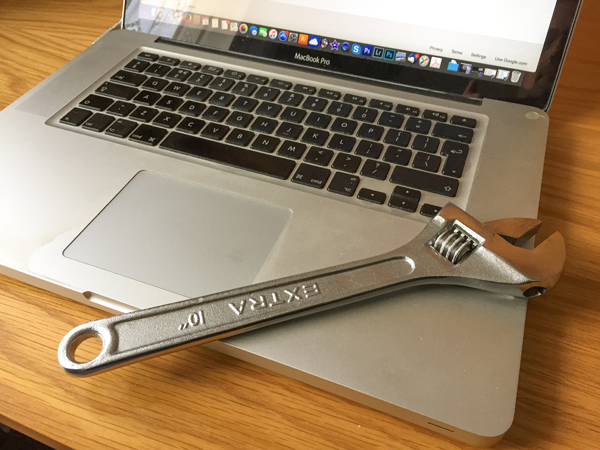Website maintenance – ok, I admit it’s not a very exciting topic, likely to be viewed with marginally less enthusiasm than your car’s MOT, or the annual service for your boiler, but important for similar reasons. Some website owners are surprised to learn that their site will require maintenance, so let’s have a quick look at the reasons why it’s necessary.
A WordPress website basically consists of 3 types of software working together. Firstly, there’s the WordPress platform itself; secondly, there’s the theme or template that the site is constructed on, and finally, there are bits of added functionality called plugins. Each of these is built by a different team of developers, working for different companies, who will issue updated versions whenever they are produced. Sometimes the aim is to fix a bug, sometimes it’s to add a new function, and sometimes it’s because of a security issue, closing a loophole which hackers might otherwise be able to exploit.

The way you respond to these updates will depend on the type of website you are running. If it’s a simple, personal portfolio for example, it’s probably sufficient to check for updates every couple of months, and installing them will only take a few moments. However, if you run a large and complex e-commerce site, security will be a major concern, and therefore you will want to be sure that you always have the most up to date versions of everything installed. In addition, you will be very careful about running site backups before installing updates, and thoroughly testing the functionality of your site afterwards, to ensure that the latest update in one piece of software hasn’t created a problem in a different one. This is rare, but it can happen, and in extreme cases can result in a broken site.
So, to sum up, whatever type of site you run, make sure that you have an appropriate maintenance plan in place.
Book that annual service now …

